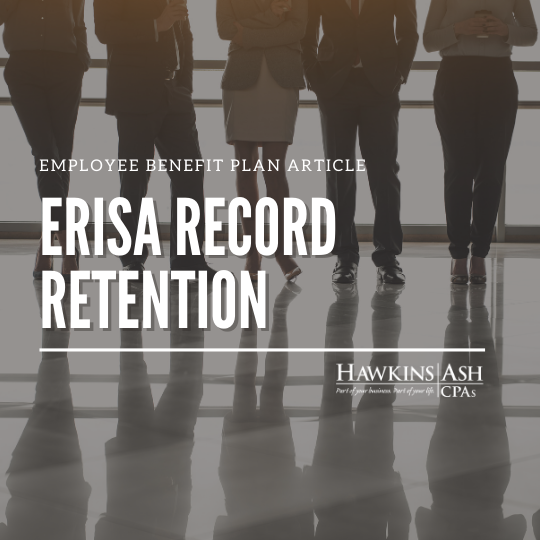Do you know why the question of, “What came first, the chicken or the egg?” continues to be debated after centuries of time? Improper document retention! All (bad) jokes aside though, the Employee Retirement Income Security Act of 1974 (“ERISA”) requires retention of important plan documents and is a serious matter. Complying with ERISA record retention requirements requires being responsible and staying prepared. Failing to do so can get you into a messy situation in the event of an audit.
What Areas Good Document Retention Helps
Audits
This is the primary reason for retaining plan documents. Audits require a lot of documentation to prove the plan has been responsibly managed and kept in compliance. A good portion of the documents you are required to retain are those you’ll need to supply for the audit.
Plan Administration
A reliably followed record retention policy allows you to respond to employee documentation requests or changes, deal with audits, and keep the plan compliant. These are all essential aspects of managing employee retirement plans and benefit entitlements.
ERISA Record Retention Requirements
Under section 107 of ERISA, anyone responsible for filing plan reports must “maintain records to provide sufficient detail to verify, explain, clarify, and check for accuracy and completeness.” In addition, under Section 209 of ERISA, employers should maintain employee records “sufficient to determine the benefits due or which may become due to such employees.” Based on those two sections of ERISA, the next logical question is, “What should be kept?”
401(k) Records that Need to be Kept
Fiduciary Plan Documents
- Original (signed) 401(k) plan document
- 401(k) adoption agreement
- 401(k) plan amendments
- IRS determination letter
- ERISA fidelity bond
- Investment policy statement
- Trust records/Investment statements
Contracts & Agreements
- Plan services agreements
- Annuity contracts and collective bargaining agreements
- Plan sponsor fee disclosure
Participant Notices
- 401(k) summary plan description
- 401(k) summary annual reports
- Blackout notices
- QDIA notices
- Participant fee disclosures
- Participant introduction packets
- Proof that the notices were sent
Compliance
- Form 5500
- Audited Financial Statements
Participant-Level Benefit Determinations
- Employee demographic information
- Employee offer letters
- Proof of compensation
- 401(k) census data
- Payroll records
- Participant account statements detailing contributions, earnings, loans, withdrawals, etc.
- Participant election forms including:
- Distribution forms (with spousal consent waivers, if applicable)
- Loan documents
- Deferral amount and allocation election forms
- Beneficiary terms
How Long Do We Need to Keep This Stuff?
Retirement plan records should be kept until all benefits have been paid and enough time has passed that the plan won’t be audited: In other words, close to forever. Retirement plans are designed to be long-term programs for participants to accumulate and receive benefits at retirement. As a result, plan records may cover many years of transactions. The Internal Revenue Code and Income Tax Regulations as well as ERISA require plan sponsors to keep records of these transactions because they may become material in administering pension law.
If you have questions, please contact us.





